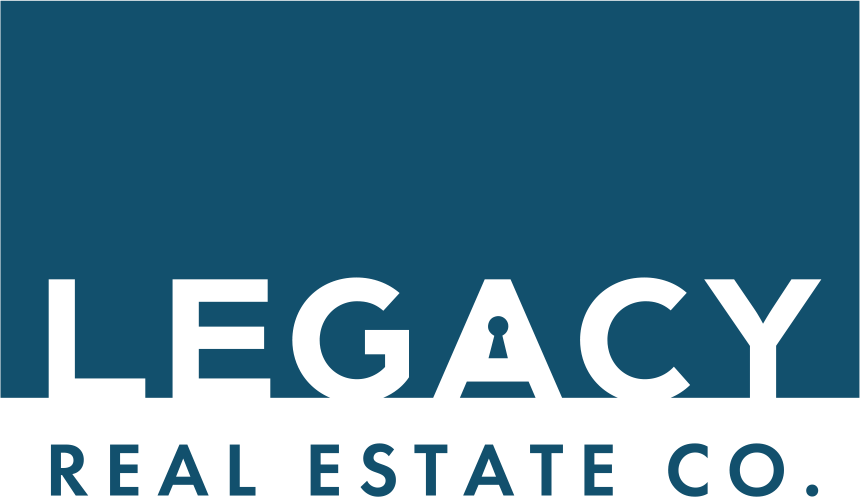Selling a house involves more than listing it and waiting for offers—it comes with various financial obligations known as closing costs. If not accounted for in advance, these expenses can surprise sellers and potentially eat into the sale’s profits. Understanding these costs is essential for effective planning and ensuring a smooth transition from one chapter of homeownership to the next. Whether you’re selling your first home or your fifth, having a clear grasp of what’s involved helps you approach the process with confidence.

Real Estate Agent Commissions
Real estate agent commissions typically make up the largest portion of closing costs for sellers. These fees are generally calculated as a percentage of the home’s sale price, with 5–6% being the most common range. This amount is usually divided between the seller’s agent and the buyer’s agent. For example, if a home sells for $400,000 and the commission rate is 6%, the total commission would be $24,000, with each agent receiving $12,000.
This fee compensates agents for their expertise, marketing efforts, and negotiation skills. Sellers benefit from professional services such as pricing strategies, home staging advice, photography, and exposure to a wide pool of potential buyers. These services often lead to quicker sales at higher prices, making the commission an investment in maximizing returns.
In certain situations, commission rates can be negotiated. Some agents may offer lower rates in competitive markets or if they represent both the buyer and the seller in the transaction. However, it’s essential to consider the level of service you’re receiving. A discounted commission might save money upfront but could lead to less effective marketing or representation.
Understanding and planning for this expense early in the selling process helps avoid surprises and ensures that you accurately calculate your net proceeds. Consulting with your agent to clarify their commission structure and services offered is a key step in the process.
Title and Escrow Fees
Title and escrow fees are critical components of closing costs, ensuring that the transaction proceeds smoothly and legally. The title company plays a pivotal role by verifying that the property’s title is clear of liens, disputes, or other encumbrances. This process protects both the buyer and the seller, ensuring that the buyer can take ownership without legal complications. The seller typically pays for the buyer’s title insurance policy, which safeguards the new owner against future title issues. Depending on the property’s value and location, this cost can range from a few hundred to several thousand dollars.
Escrow services, provided by a neutral third party, manage funds and documents during the transaction. This includes holding the buyer’s deposit, paying off existing liens, and ensuring that all contractual terms are met before funds are disbursed. Escrow fees are generally split between the buyer and the seller. These fees cover tasks such as preparing closing statements, managing communication between parties, and disbursing funds.
It is essential to request a detailed estimate from the title and escrow companies early in the process for budgeting. Sellers should also be prepared for other title-related costs, such as document retrieval fees or lien releases. While these expenses might seem minor, they contribute to the total amount deducted from the sale proceeds.
Working with reputable title and escrow companies ensures an efficient and transparent process. Clear communication with these entities and your real estate agent helps avoid misunderstandings and ensures a successful closing. Being proactive about these costs means fewer surprises on closing day and a smoother transition for everyone involved.
Transfer Taxes and Recording Fees
Transfer taxes and recording fees are government-imposed costs associated with selling a home. When property ownership changes hands, transfer taxes are levied by state, county, or local governments. These taxes are usually calculated as a percentage of the sale price, though flat rates may apply in some jurisdictions. Sellers often bear the responsibility for paying transfer taxes, but in some cases, the cost is shared with the buyer or negotiated as part of the sale.
Recording fees, while smaller, are equally important. These fees cover the cost of officially recording the new ownership with the appropriate government office, typically the county recorder. This step ensures the transfer is legally recognized and protects the new owner’s rights to the property. Recording fees vary by location but are usually a few hundred dollars.
Familiarizing yourself with local tax and fee structures is essential for accurate financial planning. Some areas, like California or New York City, have higher transfer tax rates, while others may offer exemptions for specific types of sales, such as those involving first-time buyers.
To avoid surprises, request a breakdown of these costs from your real estate agent or closing attorney. Including these taxes and fees in your estimated net proceeds ensures you understand the financial outcome of your sale. Staying informed about your obligations not only helps you prepare but also minimizes delays during the closing process. Proper planning for transfer taxes and recording fees allows for a smoother, less stressful transaction.
Home Repairs and Inspection Negotiations
Home inspections often reveal repairs that need to be addressed before a sale can close, adding another layer of costs for sellers. Buyers typically schedule an inspection after their offer is accepted, and any issues uncovered during this process can become negotiation points. While some repairs may be minor, others—like fixing plumbing leaks, replacing a roof, or addressing structural issues—can be costly.
Sellers have a few options for handling repair requests. They can agree to complete the repairs before closing, offer a credit to the buyer to cover the costs or adjust the sale price accordingly. Each approach affects the seller’s bottom line differently, so it’s essential to weigh the options carefully.
Addressing repairs proactively before listing the home can reduce the likelihood of unexpected costs during negotiations. Conducting a pre-inspection allows you to identify and fix potential issues, making the property more appealing to buyers and potentially leading to stronger offers. While this approach requires an upfront investment, it often saves money in the long run by minimizing buyer demands.
Budgeting for potential repair costs is an essential part of preparing to sell a home. By addressing known issues and planning for the possibility of inspection-related expenses, sellers can move through the process with greater confidence and fewer delays. A well-maintained home not only attracts buyers but also demonstrates a commitment to quality and transparency, helping to build trust during the transaction.
Mortgage Payoff and Prepayment Penalties
If you still have a mortgage on your property, a portion of the sale proceeds will go toward paying off the remaining balance. This is calculated based on your loan’s principal and any accrued interest up to the closing date. To avoid surprises, request a payoff statement from your lender early in the selling process. This document outlines the exact amount required to settle your mortgage, ensuring you have accurate numbers when calculating your net proceeds.
In some cases, sellers may encounter prepayment penalties, a fee charged for paying off a loan before its scheduled end date. While these penalties are less common today, they can apply to certain loans, especially those with high interest rates or specific lender agreements. Review your loan documents or consult your lender to determine if this applies to your situation.
Understanding the payoff amount and any associated fees allows you to plan effectively. Failing to account for these costs can lead to unexpected shortfalls, particularly if your sale price is close to the remaining mortgage balance.
For those with multiple loans, such as a second mortgage or home equity line of credit, it’s crucial to address all outstanding debts tied to the property. Clearing these obligations ensures a clean transfer of ownership and avoids delays during the closing process. Proper planning around mortgage payoff and related costs helps set realistic expectations and ensures a smooth transaction from start to finish.
Miscellaneous Costs and Final Considerations
Beyond the primary closing costs, sellers should anticipate several smaller expenses that can add up. These miscellaneous costs might include fees for home warranty coverage, prorated property taxes, or professional cleaning services. While individually modest, they collectively impact the final net proceeds of the sale.
A home warranty, which offers protection for appliances and major systems for a specified period, can be a valuable incentive for buyers. This expense, often a few hundred dollars, demonstrates goodwill and can make your property stand out in a competitive market. Additionally, prorated property taxes ensure that both the seller and buyer pay their fair share of taxes for the year.
Utility adjustments, such as prorating water, electricity, and gas bills, are another consideration. Sellers are typically responsible for services up to the closing date, with the buyer taking over thereafter. Ensuring these adjustments are handled accurately avoids disputes and simplifies the handoff process.
Other costs might include staging fees, temporary housing between moves, or moving expenses. While these aren’t traditional closing costs, they’re part of the broader financial picture when selling a home.
Anticipating these smaller but necessary expenses helps you prepare for the full scope of costs involved. By budgeting carefully and planning for contingencies, you can approach the sale process with confidence and ensure a smooth transition to your next chapter.
Let's Make Your Next Sale a Success
Selling a home comes with a variety of costs, each playing a role in ensuring a successful transaction. Proper planning and guidance are key to managing these expenses effectively. If you’re ready to sell your home, reach out today to discuss the next steps and gain expert support throughout the process.
